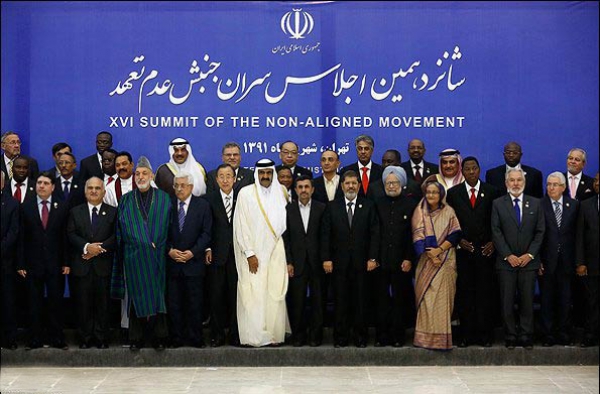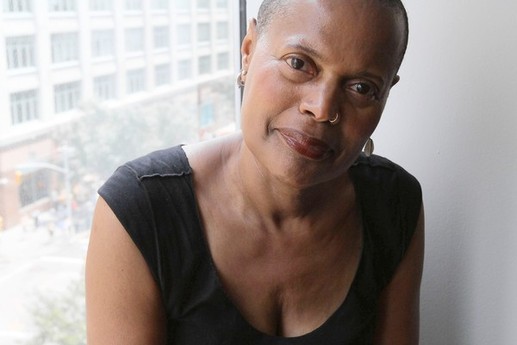How Technology Is Redefining Diplomacy
I have been in New York City covering various UN Week events, including the Social Good Summit and the Clinton Global Initiative. Now more than ever the diplomatic world uses technology to reach their constituencies and find solutions to many global problems.
“Leaders around the world are coming together at the United Nations seeking solutions for some of the toughest challenges we might face,” said US State Secretary Hillary Clinton in her remarks to the Social Good Summit. “At the same time a revolution in social media is helping people everywhere take part in a global conversation about how we can work together to advance the common good.”
Up until recently the State Department had been accused of being late to adapting to social media. But with the inauguration of the “first Internet President” Barack Obama, it seems like US diplomats are forging a new digital frontier. According to Victoria Esser, Deputy Assistant Secretary of Public Affairs for Digital Strategy at the State Department, the Department has 300 Twitter profiles and 400 Facebook pages. Esser also said the Department recently began using Google Hangout and hosted an event in Persian for Iranian journalists and bloggers as a way to reach out to a country the United States doesn’t have a diplomatic relationship with currently.
“Social media is an integral part of how we’re conducting our diplomacy around the world,” Esser said. “To me, it’s about creating virtuous circles online and offline — nothing will replace face-to-face diplomacy, but social media is an important way to connect with people and cut away time, distance and diplomatic rank barriers and have a real conversation.”
However, recent riots in the Islamic world attributed to the Innocence of Muslims YouTube video has put e-diplomacy in a poor light. Specifically, a tweet from the US embassy in Cairo may have further instigated the deadly chaos.
Former State Department spokesman James Glassman says this incident shouldn’t deter other diplomats from using social media, but rather be more mindful of what they are saying in the future.
…A bigger problem, however, is that I suspect the Obama administration did not have a clear policy on how to handle scurrilous videos, cartoons, and the like. The rioting that followed the Danish cartoon controversy in 2005 caused Bush officials, me included, to work hard preparing for another such event. We were sure it would happen again.
The right response today, I believe, has three parts, and the order is important: 1) violence is never acceptable, and America will take strong action if its people and property are attacked, 2) we believe in the principle of free speech, and 3) all religions deserve respect.
Effective public diplomacy begins with clear ends (which, as an aside, I am not so sure the United States has in Egypt or other parts of the Middle East), and leaders have the responsibility to communicate up and down the line both those ends and the right messages to achieve them. Get that right, and then liberated diplomats on the ground can use the amazing tool of social media — a gift, really — to powerful effect.
Esser indirectly discussed the public relations disaster the Cairo embassy created. “We’ve devolved [control] so missions in the field are responsible, with general guidance from Washington. You can’t manage a tweet at a time, and it’s important not to or it won’t be authentic to the community you’re trying to engage with. We recognize there will be bumps along the road, but as my colleague Alec Ross points out, the twenty-first century is a terrible time to be a control freak. If you want to engage in this dialogue, there’s a certain loss in control involved.”
Nonetheless, many diplomats are teaching themselves how to be tech-savvy, like Indonesian Ambassador to the United States Dino Patti Djalal, who boosted about how social media literally made his birthday wish come true.
“I recently made a tweet… I have about 100,000 followers. I said, ‘if you want to give me a gift for my birthday, do one act of kindness.’ A few hours later, the hundreds of replies I got were amazing: ‘I proposed to my girlfriend,’ ‘I kissed my mom on the cheek.’ That’s when I realized. . .the power of social media. It has a remarkable use for the field of diplomacy,” said Ambassador Djalal.
Former US Ambassador to Zimbabwe Charles Ray says he became known for his Facebook use, but the Zimbabwean government wasn’t too pleased. He started using Facebook because there was hostility from Robert Mugabe’s regime about having meetings with young Zimbabweans in person.
“When the government discovered our face-to-face meetings with young people were having an effect,” he said. “They started disrupting meetings. They hated it with a passion. So we came up with an alternative, which was a wild suggestion at the time: A live Facebook chat, along with SMS, Twitter, and YouTube. In the first one, 20 people enrolled and we had 250 comments in the first 30 minutes.”
US Ambassador to the United Nations Susan Rice says she was a skeptic about social media at first, as “it might cheapen the coin.” But she realized quickly that so much good can come out of social media. Rice is now an avid user of Twitter, tweeting about global humanitarian efforts and says she has used YouTube to post videos encouraging women to vote and run for office.
The diplomatic world is also taking Internet policy more seriously as well. Yesterday the Broadband Commission for Digital Development released its report, The State of Broadband 2012: Achieving Digital Inclusion for All. It is their first ever country-by-country assessment of broadband deployment.
…The report reveals that while household Internet access has seen strong growth over the past year and is on track to achieve the Commission’s target for Connecting Homes to Broadband, individual Internet use continues to lag behind. ITU analysts believe that mobile broadband could prove the platform for achieving the boost needed to get progress back on track – at end 2011, there were already almost twice as many mobile broadband subscriptions as fixed broadband connections…
“The question here is whether broadband is a luxury or a basic human right,” says ITU Secretary-General Hamadoun Touré. “I believe it is a basic human right.”
Touré says he is working with UNESCO and other human rights groups within the UN system to figure out a clear definition for human rights and how to include broadband access. Touré stressed that we have to find a baseline for basic rights, and at this time in history, access to information online counts towards advancing social change and equality.
As Ambassador Rice said at the Social Good Summit, everyone has to be working together for the same goals to make the world a better place.
“It’s not about working for change, it’s about being the change,” Rice said.


